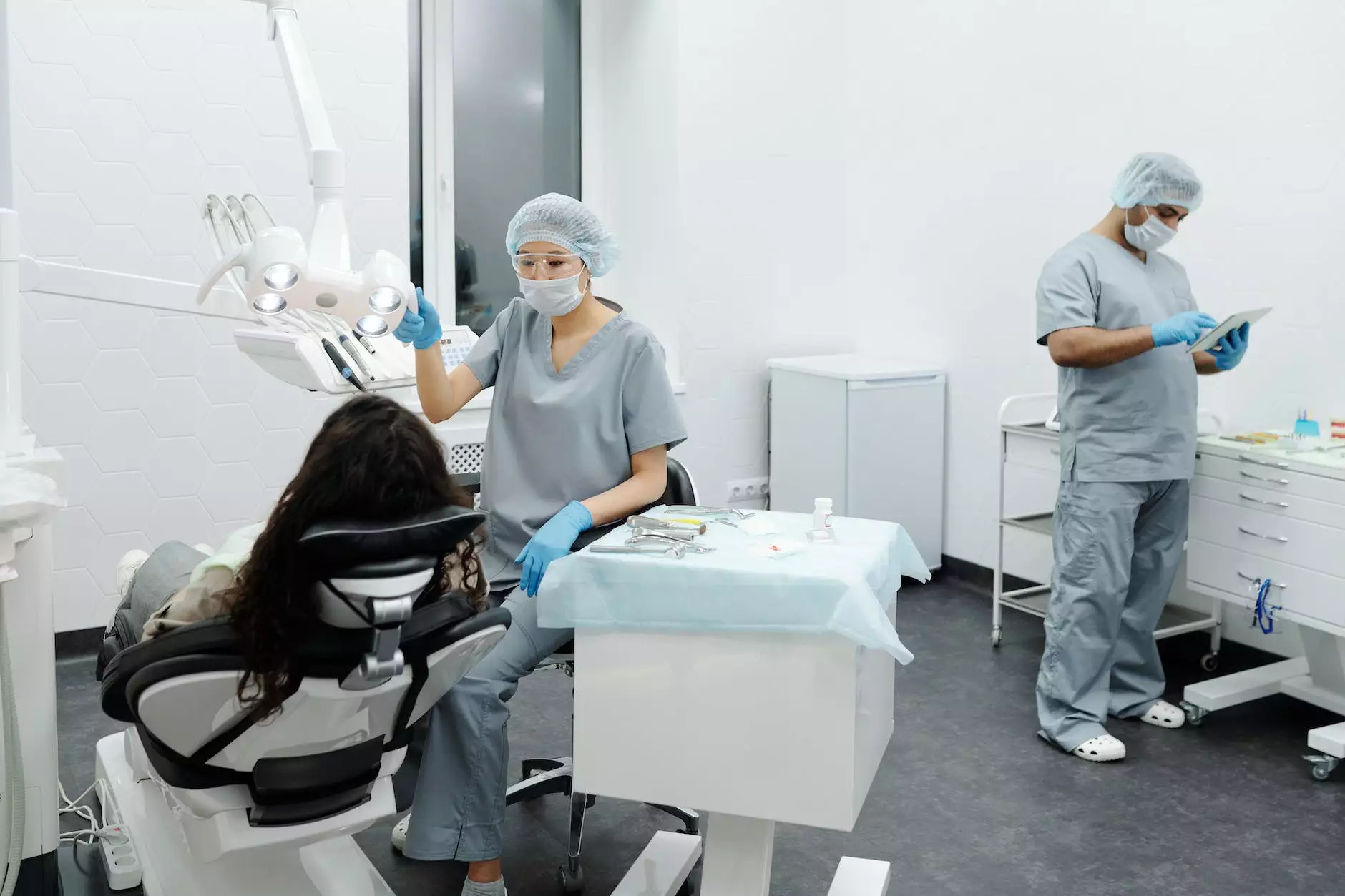Understanding the Role of a **Thoracic Surgeon** in Health and Medicine

In the vast and intricate field of health and medicine, few specialties carry the weight and importance as that of a thoracic surgeon. Thoracic surgeons are medical professionals who specialize in surgeries of the chest, which encompass the lungs, heart, and esophagus, among other vital structures. This article aims to delve deep into the role of thoracic surgeons, exploring their education, specialties, and the significance of their work in the realms of health, sports medicine, and physical therapy.
1. What is a Thoracic Surgeon?
A thoracic surgeon is a highly trained medical doctor who focuses on the surgical treatment of diseases and conditions affecting the chest. These specialists are an essential part of the healthcare system, providing patients with expert care for a range of conditions. They perform surgeries for:
- Heart disease (including valve repairs and coronary artery bypass grafting)
- Lung cancer (including lobectomies and pneumonectomies)
- Esophageal disorders (including esophagectomies)
- Thoracic aortic aneurysms
- Trauma to the chest area
2. Educational Pathway to Becoming a Thoracic Surgeon
The journey to becoming a thoracic surgeon is lengthy and rigorous. It typically involves the following:
- Undergraduate Education: An aspiring surgeon must first obtain a Bachelor's degree, usually in a science-related field.
- Medical School: Following undergraduate education, students must complete a medical degree (MD or DO).
- Residency: After medical school, candidates undertake a general surgery residency, which lasts 5-7 years.
- Fellowship: Next, they complete additional specialized training in thoracic surgery for 2-3 years.
- Board Certification: Finally, they must pass rigorous board examinations to become certified surgeons.
3. Specialties Within Thoracic Surgery
Within the field of thoracic surgery, specialists often focus on particular areas. Some common specialties include:
- Cardiothoracic Surgery: This sub-specialty focuses on surgical procedures involving the heart and other thoracic organs.
- Pediatric Thoracic Surgery: Surgeons in this area perform operations on infants and children with congenital heart defects or other related issues.
- Thoracic Oncology: This specialty deals specifically with cancerous conditions of the thorax, especially lung cancer.
- Transplant Surgery: Some thoracic surgeons focus on lung transplants, requiring specific skills and training.
4. The Importance of Thoracic Surgeons in Health Care
Thoracic surgeons play a critical role in patient care. Their expertise is vital for diagnosing and treating severe health issues that could be life-threatening if left unmanaged. They work closely with other medical professionals, including general practitioners, oncologists, and pulmonologists, to develop comprehensive treatment plans. Their contributions are particularly significant in:
4.1 Surgical Interventions
Patients with severe conditions often require complex surgeries that demand a high level of skill and precision. Thoracic surgeons are trained to handle these intricate surgeries, which can include minimally invasive techniques that result in shorter hospital stays and quicker recovery times.
4.2 Multidisciplinary Teams
Building a multidisciplinary healthcare team is essential for maximizing patient outcomes. A thoracic surgeon often collaborates with various specialists to create tailored treatment plans that reflect each patient’s unique medical history, current health status, and personal goals.
5. Integration with Physical Therapy
Post-surgical rehabilitation through physical therapy is a vital component of recovery for patients who have undergone thoracic surgery. A skilled physical therapist plays a significant role in helping patients regain strength, mobility, and function. The collaboration between thoracic surgeons and physical therapists ensures that patients have a well-rounded recovery plan that may include:
- Breathing Exercises: To improve lung function and oxygenation.
- Strength Training: Targeted services to restore strength in the chest and upper body.
- Cardiovascular Conditioning: Enhancing overall cardiovascular fitness will be key for postoperative patients.
6. Role in Sports Medicine
The relationship between thoracic surgeons and sports medicine is often overlooked. However, for athletes, thoracic injuries can significantly impact performance. Surgical intervention may be necessary to address:
- Pulmonary contusions: Bruises or damage to lung tissue from trauma.
- Chest wall injuries: This may include fractures and dislocations that can hinder athletic performance.
- Respiratory conditions: Such as exercise-induced bronchoconstriction which affects athletes' breathing during high-intensity sports.
7. Advancements in Thoracic Surgery
As technology continues to evolve, so does the field of thoracic surgery. Innovations such as robotic-assisted surgery and enhanced imaging techniques have led to improved outcomes for patients. These advancements allow for:
- Reduced Recovery Time: Minimally invasive surgeries mean shorter recovery and less postoperative pain.
- Improved Precision: Technological enhancements provide surgeons with better visualization of thoracic structures.
- Lower Risk of Complications: Enhanced techniques reduce the likelihood of surgical errors and complications.
8. Conclusion: The Vital Role of Thoracic Surgeons in Modern Medicine
In conclusion, thoracic surgeons are indispensable to the medical field. Their skills and knowledge not only provide surgical solutions to complex thoracic issues but also integrate vital rehabilitation through partnerships with physical therapists and collaboration with athletes in sports medicine. As advancements continue to emerge and improve patient care, the role of a thoracic surgeon will remain essential in uplifting health standards and enhancing patient quality of life.
If you are looking to learn more about the contributions of thoracic surgeons or are in need of specialized care, visit us at Hello Physio for more information on how our dedicated team can assist you in your health journey.









